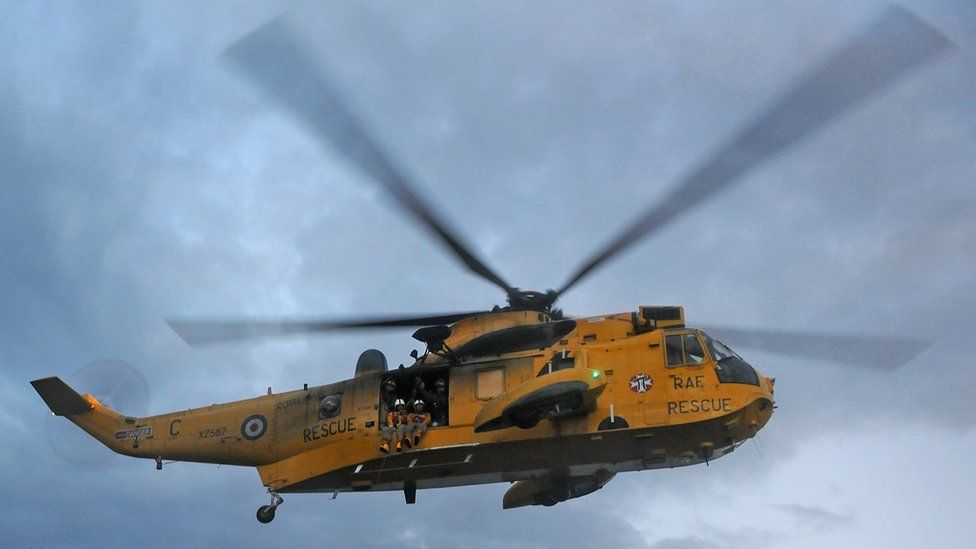Asbestos warning for Sea King helicopter staff
- Published

Military staff who worked on Sea King helicopters are being warned they may have been exposed to asbestos.
The Ministry of Defence is urgently removing parts suspected of containing the harmful material from its aircraft, which have been in service since 1969.
The Mail on Sunday reports thousands of engineers may be affected, but pilots - who have included members of the royal family - are not said to be at risk.
An MoD spokeswoman said the safety of personnel was "our highest priority".
Past exposure
The ministry faces the task of getting in touch with staff who worked on Sea Kings since the aircraft came into service nearly 50 years ago.
"Any remaining items in service Sea Kings suspected to contain asbestos are being removed urgently and we are contacting those who may have been exposed in the past, detailing the actions they should take," the MoD said.
Foreign governments and civilian organisations which have bought former UK military Sea Kings are also being contacted and advised of action to take.
The MoD spokeswoman said: "The safety of our personnel and our partners is always our highest priority. All Sea King items suspected to contain asbestos have been removed from stores."
About 5,000 people a year die from asbestos-related illnesses - the material releases fibres when it is disturbed, causing cancer and damage to the lungs.
The substance was widely used in electrical and building insulation until it was banned in 1999.
In other cases, not involving the MoD, workers and their families have been awarded hundreds of thousands of pounds in compensation after they developed mesothelioma, an aggressive form of cancer, from asbestos.
The British Lung Foundation advises that most people exposed to asbestos do not develop serious illnesses, but that they should tell their GP and mention any symptoms of coughing, shortness of breath or chest pain.
Search and rescue
The warning from the MoD comes after an official report into the death of an Australian serviceman was attributed to exposure to asbestos, petrol or other toxins while working on a naval base.
Petty Officer Greg Lukes, an avionics technician who maintained Sea Kings in New South Wales, died four years ago from a rare, aggressive form of cancer.
The Sea King has been deployed in conflicts from the Falklands War to Afghanistan.
In its role as a search and rescue craft, it flew on 14,595 missions between 1982 and 2013.
But the ageing aircraft is being gradually replaced, with search and rescue missions taken over by privately operated Sikorsky S-92s and AgustaWestland AW189s as the Royal Navy switches to Merlin helicopters.
- Published14 January 2016
- Published28 October 2016
- Published21 March 2016